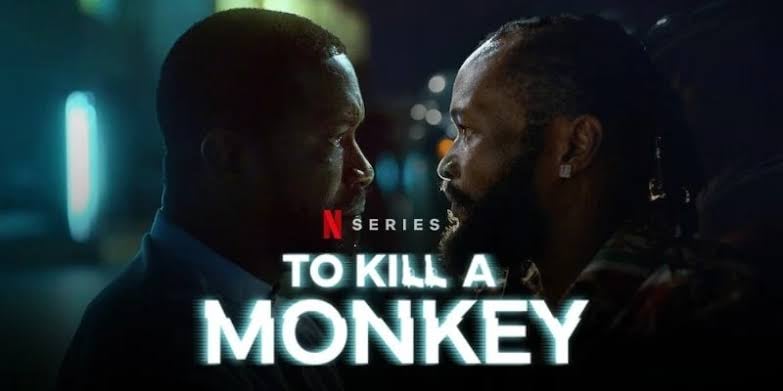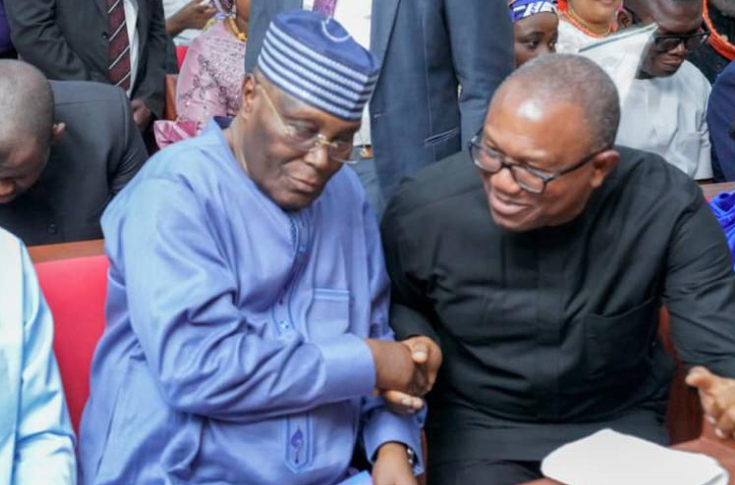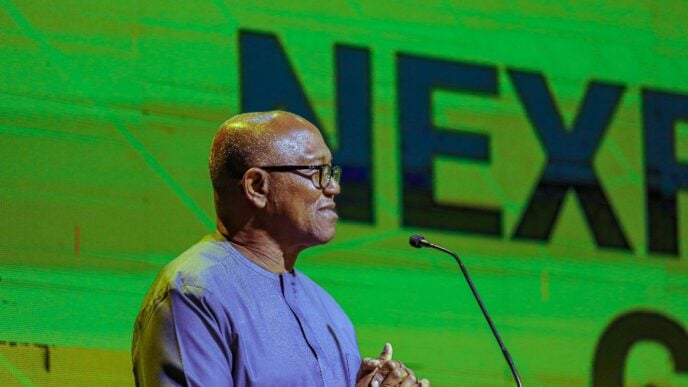BY BASHIR ADIGUN
Kemi Adetiba has done it again—and this time, she does not just push the envelope, she sets it ablaze. With To Kill a Monkey, now streaming on Netflix, Adetiba, already celebrated for Wedding Party and the politically charged King of Boys series, steps boldly into the murky waters of organized cybercrime, betrayal, ambition, and the chaos that swirls within Lagos’ criminal underworld. The result is a brutal, unflinching crime thriller that solidifies her status as Nigeria’s most daring filmmaker of the moment.
In a country still grappling with the global stigma of internet fraud, To Kill a Monkey is both daring and timely. At its core, the series is a haunting portrait of how desperation, systemic failure, and unchecked ambition can corrode even the most well-meaning man.
The central character, Efemini Edewor (brilliantly portrayed by William Benson), is a struggling waiter in Egbeda, a Lagos suburb, trying to make ends meet for his small family. His modest aspirations crumble when financial pressures, personal betrayal, and a brush with death push him into the lair of Oboz- played with chilling swagger by Bucci Franklin—a criminal mastermind whose underground cybercrime empire operates behind the facade of opulence.
Oboz wears his menace like a second skin, and his brooding presence becomes a magnet that draws Efe into the “Monkey” world—a coded reference to the faceless, masked cyber-fraud ring that thrives on greed and manipulation. Adetiba masterfully pulls viewers through the slow burn of Efe’s transformation, from reluctant recruit to tech-savvy architect of a new artificial intelligence scam that threatens to disrupt global financial systems.
Advertisement
Where King of Boys explored power, patriarchy, and politics, To Kill a Monkey drills into moral erosion and the blurred lines between victim and villain. The writing is sharp, often disturbing, and at times shockingly realistic. It shows a Lagos that is vibrant but violent; alive but poisoned by the ambition of men like Oboz, Teacher, and ultimately, Efe himself.
The script does not shy away from uncomfortable truths. There is workplace sexual coercion. There is poverty. There is betrayal in marriage, and a moral rot in Nigeria’s institutions. The National Cyber Crime Commission—Adetiba’s fictional answer to the EFCC—is shown to be both a dogged hunter and a compromised machine. Bimbo Akintola’s portrayal of Inspector Motunrayo Ogunlesi is emotionally devastating.
Returning from a mental health crisis after losing her family, Motunrayo’s obsessive pursuit of the Monkey gang becomes a personal battle to restore her sanity and integrity in a system that gaslights her.
Advertisement
Her counterpart, Superintendent Eno Babalola (Ireti Doyle), represents the institutional blockages that silence truth-tellers and reward passivity. The internal sabotage Motunrayo faces adds depth to the series’ critique of systemic rot—making it not just a crime drama, but a quiet indictment of power structures.
Romance and betrayal also bleed into the narrative, literally. Stella Damasus delivers a raw and layered performance as Nosa, Efe’s long-suffering wife, whose unwavering support is tested beyond limit.
Sparkle (Sunshine Rosman), the seductive informant turned lover, is one of the series’ most memorable characters. Her allure is as deadly as her deceit. She plays Efe and the audience in equal measure.
Then there is Chidi Mokeme’s unforgettable role as Teacher, the old crime lord who demands a piece of the pie from Oboz and Efe. Mokeme is cold, calculating, and terrifying. His scenes are laced with understated malice. When he unleashes terror on both Oboz and Efe’s families—locking a child in a fridge, stabbing a grandmother in broad daylight—it sends a chilling message: no one is safe in the Monkey game.
Advertisement
The dialogue is raw and authentically Nigerian. The use of pidgin English adds cultural texture and street credibility. Phrases like “Ashawo don loose guard” and “You wan kpai?” echo the streets they are spoken from, grounding the story in local realities without alienating global audiences.
But To Kill a Monkey isn’t without flaws.
The final episodes feel rushed. A series that so patiently built character arcs and rivalries suddenly speeds toward resolution in an action-heavy climax that leaves little room for emotional payoff. The courtroom shoots out, while visually arresting, strains believability.
Still, Adetiba’s direction keeps the chaos controlled, and the ending—though violent—feels earned.
Advertisement
The cinematography is a standout feature.
Lagos is captured in all its gritty glory: the slums, the markets, the glistening skyscrapers, and the shady nightclubs. The camera work is fluid, and the editing is sharp. Costume design and production value are world-class, confirming Adetiba’s ability to match Nollywood narratives with Hollywood execution.
Advertisement
The message, however, is clear and uncomfortable: In a society where survival means compromise, everyone eventually kills a monkey—or becomes one.
To Kill a Monkey is Kemi Adetiba’s most audacious work yet. It’s not just a crime series—it’s a reflection of a broken society, a metaphor for Nigeria’s moral contradictions, and a powerful exploration of how easily good people can become monsters. In marrying art with critique, entertainment with warning, Adetiba reminds us that in the jungle of ambition, betrayal, and poverty, the line between predator and prey is often blurred.
Advertisement
With To Kill a Monkey, Kemi Adetiba does nott just entertain. She confronts. She disturbs. And most importantly, she elevates Nollywood to a space where our most dangerous stories are told with daring clarity.
Advertisement
Views expressed by contributors are strictly personal and not of TheCable.









